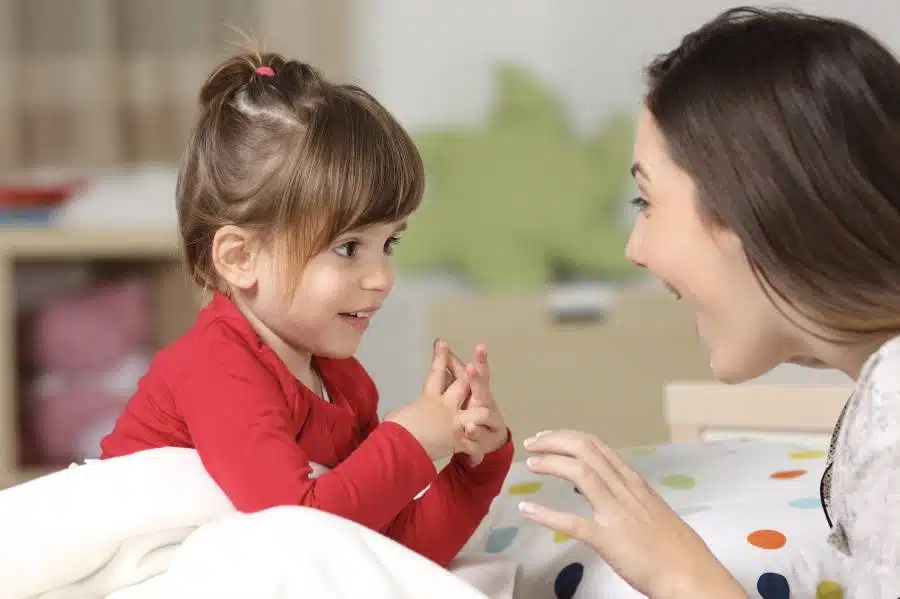Rouzan Dishoian MS, CF SLP
Does your child repeat long phrases after you but will not use words to communicate? This is called Echolalia.
By definition, echolalia is the repetition of words, phrases, or sentences previously heard with the same exact intonation pattern. Echolalia has two types: immediate echolalia, when the child repeats the word immediately after hearing it, or delayed echolalia, when the child scripts previously heard words or phrases. Echolalia is a normal part of language development, and it is considered pathological only if it persists beyond the age of three.
Here is an example of immediate echolalia; the caregiver asks the child “do you want water?” and the child echoes “do you want water?” The child may understand the meaning of the question and repeats it to indicate “yes”, or the child may not understand the meaning of the question and repeats it to help with auditory processing.
With children who present with echolalia, we recommend modeling sentences in the exact way we want them to say it. For example, while a caregiver is pouring water for a child, she models “I’m thirsty” or “I want water please”.
Children who demonstrate echolalia are typically gestalt language processors. The latter is processing language as whole chunks (phrases/sentences) instead of smaller units (single words). A gestalt language processor may not initially understand what the word “thirsty” means, but will associate “I’m thirsty” with requesting or drinking water/juice.
Delayed echolalia might be more difficult to interpret, especially when it is out of context, because it might not always have a communicative intent.
Here is an example; every time a child runs to the front door, the mother says “stay there, the door is locked”. Later, when the child goes to school, the teacher presents a non-preferred activity; puzzles. The child runs away and vocalizes, “the door is locked”. This may seem purposeless to the teacher. However, the child is using that phrase to express rejection to the non-preferred activity. In this case, the best way to shape this delayed echolalia is by rephrasing it to “no puzzle, let’s do bubbles”.
Although it is sometimes difficulty to interpret meaning from echolalia, we consider echolalia a strength in individuals with ASD as it indicates that the child is processing language. In speech therapy, we shape echolalia into more meaningful vocalizations to serve a functional communication.




